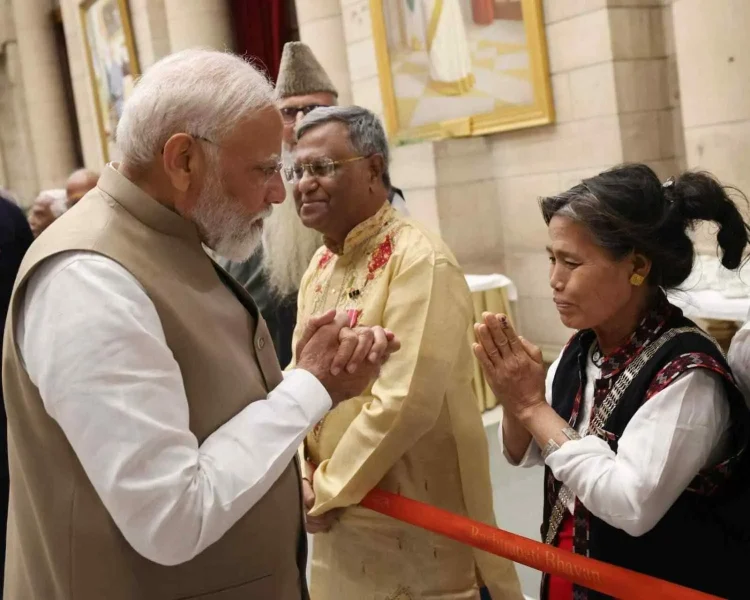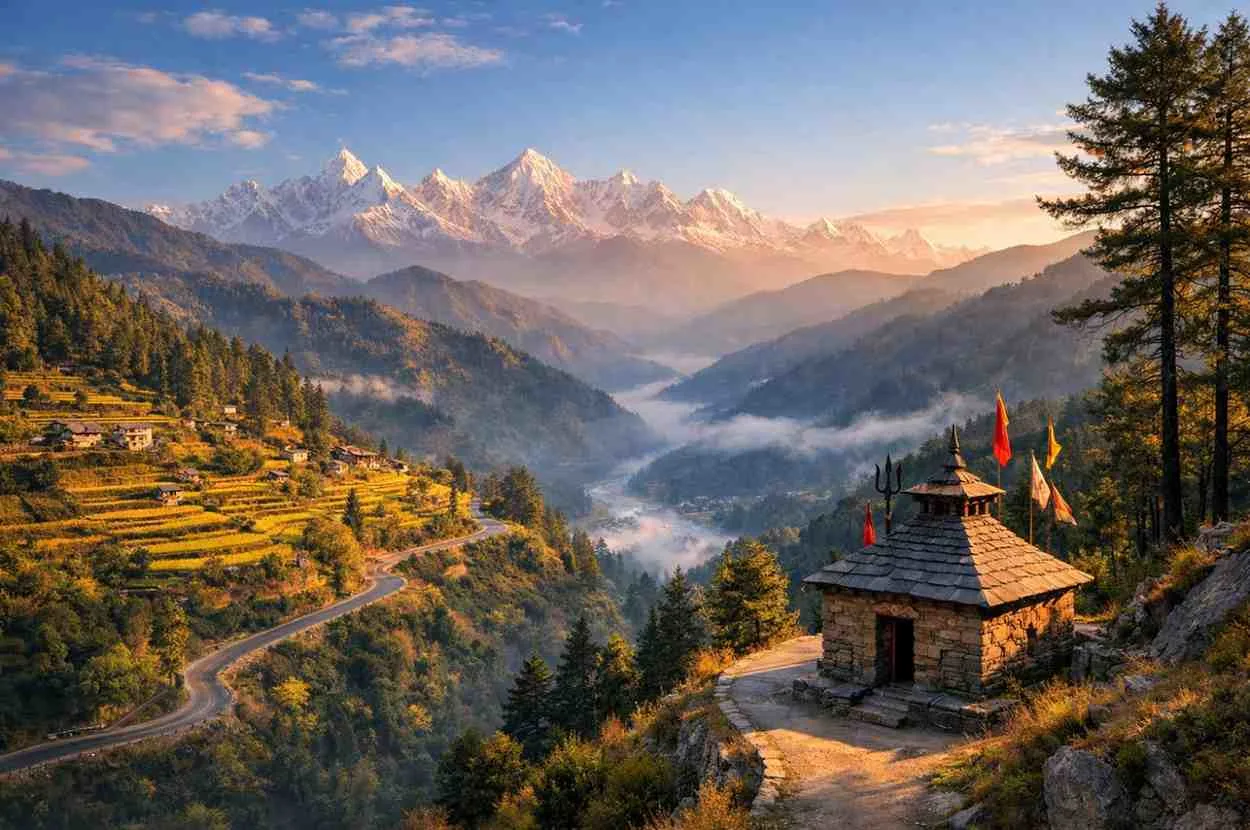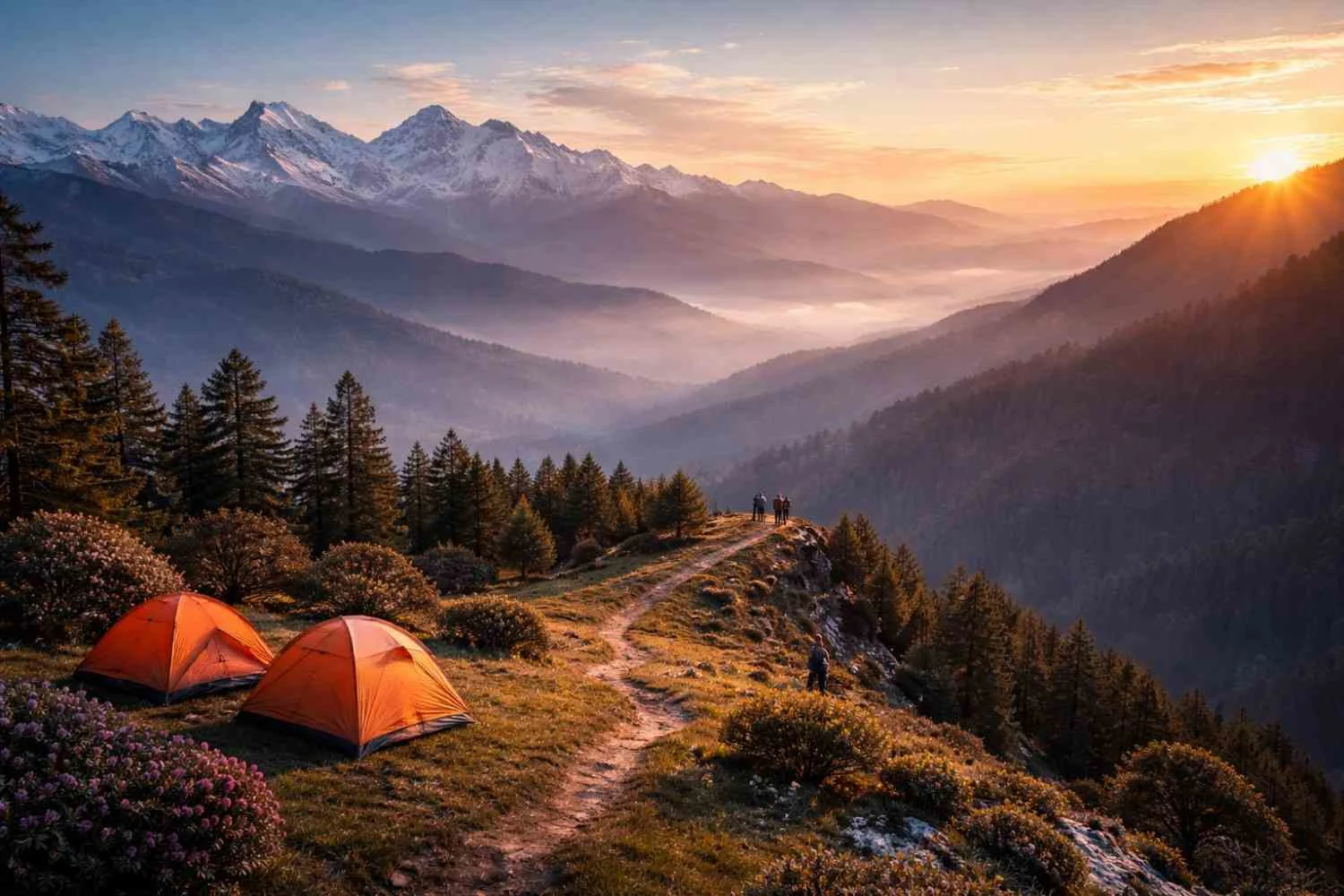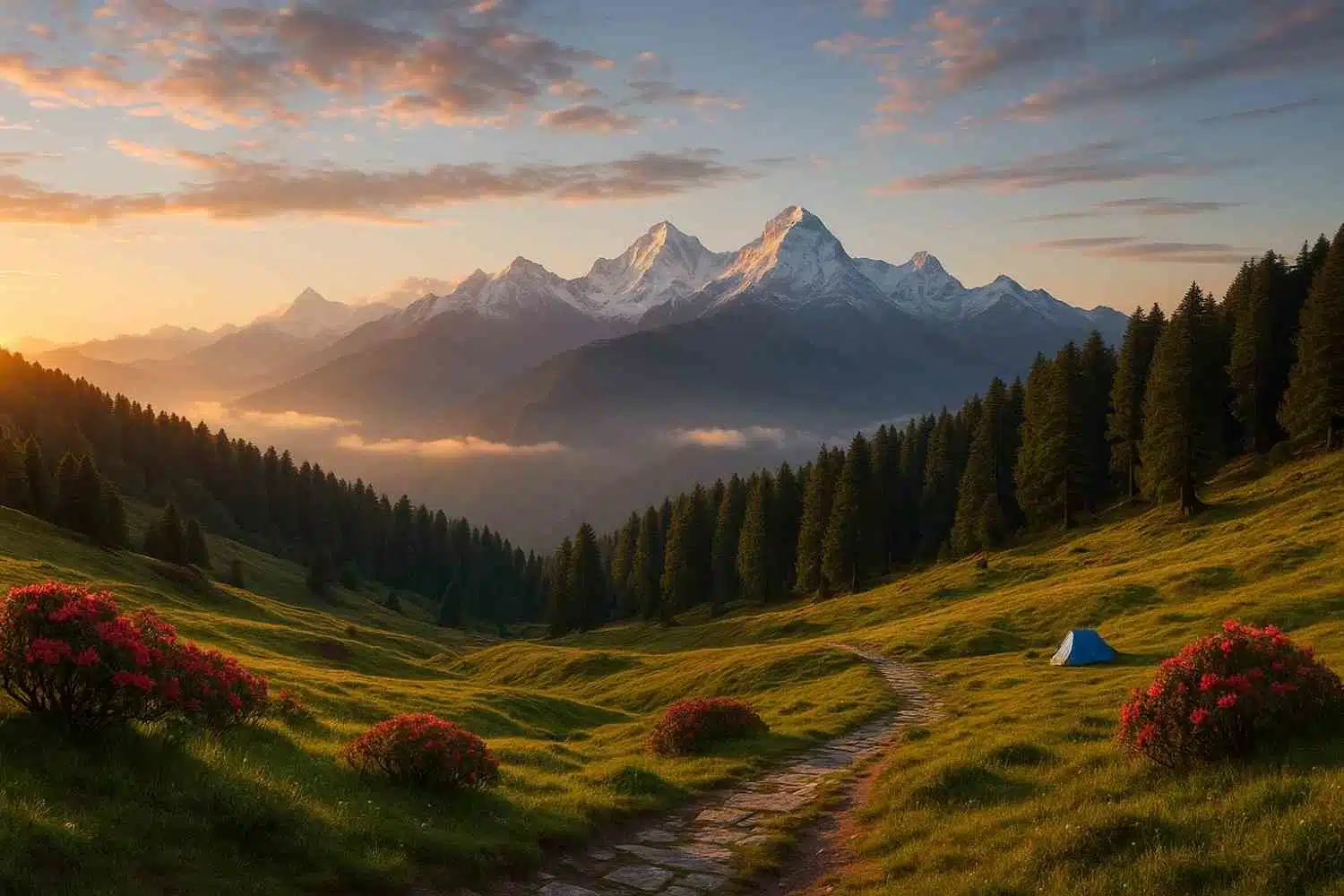Medical Disclaimer:
This article is for information and storytelling about a public figure only. It does not provide medical advice, diagnosis, or treatment. Herbal remedies are not a substitute for evidence-based cancer care. Do not start, stop, or replace any treatment without consulting a qualified oncologist or licensed clinician. Individual outcomes vary; claims described here are largely anecdotal and require scientific validation through controlled studies. If you have symptoms or a diagnosis, seek professional medical help immediately.
Introduction
Who is she?
Yanung Jamoh Lego is a celebrated herbal medicine practitioner in Arunachal Pradesh, known for reviving and practicing indigenous healing in Arunachal based on local medicinal plants and community knowledge. In 2024, she was recognized nationally as the Padma Shri awardee 2024 Yanung Jamoh Lego for her service to traditional healthcare and agriculture. (Press Information Bureau)
Why it matters now
At a time when modern healthcare and traditional knowledge often sit apart, Lego’s work sparks conversation about complementary care—how communities conserve medicinal flora, document folk pharmacopoeias, and pass on craft knowledge while staying mindful of safety and scientific standards. Her outreach has included training thousands on kitchen-garden herbs and sustainable collection practices across the Siang belt. (Press Information Bureau)
Yanung Jamoh Lego Early Life and Background
Born on July 9, 1963, in Sika Tode village, East Siang district, Yanung belongs to the Adi community of Arunachal Pradesh. Her entry into traditional healing began at home: she apprenticed for years under her father, a respected folk healer, observing plant selection, preparation, and customary protocols around treatment and prayer. Seeking formal learning too, she completed her B.Sc. and M.Sc. (Agriculture) from Assam Agricultural University, Jorhat, which later helped her systematize cultivation and documentation of medicinal plants. (Press Information Bureau)
Yanung Jamoh Lego Career Journey
After university, Yanung Jamoh Lego joined the Department of Agriculture, Government of Arunachal Pradesh in 1988, working for decades (ultimately in senior roles) before retiring in 2023. Post-retirement, she committed full-time to traditional practice and community training. In 2009, she founded Indigenous Herbal Heritage, an initiative to cultivate, conserve and teach about medicinal plants and home-level herb gardens—connecting ancestral knowledge to practical cultivation. (Press Information Bureau)
Yanung Jamoh Lego Contributions to Herbal Medicine
A core of Lego’s contribution is revival and transmission: cataloguing herbs known to Adi elders, encouraging in-situ conservation, and cultivating rare species in nurseries and kitchen plots. Through Indigenous Herbal Heritage, she has reportedly educated 100,000+ people in herbal awareness and facilitates planting ~5,000 medicinal plants annually, reinforcing the ecological base of indigenous healing in Arunachal. Her classes emphasize sustainable harvesting (avoiding over-collection of roots/rhizomes), correct identification, and respect for community protocols. (Press Information Bureau)
Treating Serious Ailments with Herbal Medicine
Over the decades, Yanung Jamoh Lego has been approached by people with chronic illnesses—from metabolic and skin conditions to respiratory complaints and kidney issues. Media and official citations also mention cancer patients seeking her support. Public narratives credit her with benefiting thousands (figures vary in reports); official Padma documentation highlights claims of 10,000+ and other reports cite higher cumulative numbers over her career. These patient stories circulate widely in the region, though they are not the same as peer-reviewed evidence. Lego often expresses a belief aligned with traditional ethos: “Nature holds a solution to many diseases”—a worldview she pairs with messaging about plant conservation. (padmaawards.gov.in)
Important: Anecdotes ≠ clinical proof. Readers should treat all outcome claims as unverified unless backed by published trials.
Herbal Cancer Treatment Approach (Supportive & Complementary Care)
Lego’s practice centers on medicinal plants and herbal extracts prepared as decoctions, powders, pastes, or oils. In public talks and features, her approach is framed as non-toxic, nature-derived support—targeting general well-being, appetite, sleep, digestion, and stress, while patients continue mainstream care. The philosophy is holistic: mind–body balance, clean diet, rest, and reciprocity with nature. Many patients, particularly those from rural belts or those exhausted by prolonged illness, report turning to her for comfort measures, cultural familiarity, and hope, even while staying in touch with hospitals. Lego frequently positions her work as complementary, not adversarial, to modern health awareness—an area where more scientific validation is needed (e.g., herb–drug interactions, dose safety, and standardization). Always consult an oncologist before adding herbs to a cancer regimen. (BehanBox)
Yanung Jamoh Lego Recognition & Awards
In 2024, Padma Shri awardee 2024 Yanung Jamoh Lego received India’s fourth-highest civilian honour for contributions to traditional healthcare and agriculture. Following the award, the Indian Army’s Spear Corps felicitated her at Sigar Military Station in July 2025 for service to indigenous knowledge systems. State and national media have profiled her frequently, spotlighting her plant conservation drives and outreach work. (Press Information Bureau)
Yanung Jamoh Lego Challenges in Promoting Herbal Healing
Three headwinds recur in interviews and features. First, skepticism—clinicians require trial-grade evidence (safety, efficacy, standardization) before adopting herbal protocols, which traditional practice seldom generates due to funding and design hurdles. Second, resource constraints—nursery work, field documentation, and free/low-fee community teaching need steady support. Third, validation—bridging to labs and universities to test plant extracts, identify active compounds, and establish dosage and interactions. Lego’s story underscores that indigenous healing in Arunachal thrives when conservationists, clinicians, and communities collaborate, not compete. (PMC)
Yanung Jamoh Lego Future Vision and Legacy
Lego repeatedly emphasizes training the next generation—youth, community health workers, and farmers—to know the plants of their landscape and cultivate them sustainably. A second strand is documentation: vernacular names, habitats, seasons, parts used, and cautions. She also envisions bridging with modern healthcare—encouraging patients to keep doctors informed, and inviting researchers to study local botanicals ethically and evidence-first. If this bridge is built thoughtfully, herbal medicine practitioner in Arunachal Pradesh stories like hers may inform complementary care models that respect both tradition and science. (BehanBox)
Conclusion
Yanung Jamoh Lego embodies a lived archive of place-based knowledge—a reminder that forests and fields house libraries of medicinal plants. Her work is not a replacement for hospitals; rather, it points to a more integrated future, where cultural practice, ecology, and science meet around the patient’s needs. In resource-sparse settings, safe, complementary herbal support—properly vetted—may ease symptoms, restore appetite, and provide psychological comfort. The path forward is clear: rigorous studies, plant conservation, and patient-first collaboration between healers and clinicians. (PMC)
Quick Links (Social)
We found the following publicly visible channels associated with Yanung Jamoh Lego. As with any social profile, verify authenticity before engaging.
Facebook: https://www.facebook.com/yanung.jamoh.lego.2025/
Instagram: https://www.instagram.com/yanung_jamohlego56/
YouTube: https://www.youtube.com/channel/UCoHy8C668GE5kqRdrDHBFfg
FAQs
1) Who is Yanung Jamoh Lego?
A renowned herbal medicine practitioner in Arunachal Pradesh from the Adi community (East Siang), known for community-based plant healing and conservation. She combines traditional apprenticeship under her father with formal M.Sc. (Agriculture) training. (Press Information Bureau)
2) Why was Yanung Jamoh Lego awarded the Padma Shri?
For decades of work in traditional healthcare and agriculture—including conservation, cultivation, and public education on medicinal plants. She received the Padma Shri in 2024. (Press Information Bureau)
3) What type of illnesses does she treat?
Reports and official citations mention people visiting her for chronic diseases, respiratory and skin conditions, kidney issues, and support during serious illnesses. These accounts are anecdotal and should not be taken as clinical proof. (padmaawards.gov.in)
4) Does Yanung Jamoh Lego treat cancer patients?
Yes—cancer patients do approach her for herbal support. However, herbal care must be complementary, not a replacement for oncology care, and should be discussed with your treating team to avoid herb–drug interactions. (BehanBox)
5) How can herbal medicine help in cancer care?
Traditional herbs are sometimes used as supportive measures—to improve appetite, energy, sleep, or manage minor symptoms. Evidence is limited and mixed; rigorous clinical trials are needed. Always consult a licensed clinician. (General background on traditional medicine in Northeast India’s context: (PMC))
6) What is Indigenous Herbal Heritage founded by Yanung Jamoh Lego?
An initiative started in 2009 to promote cultivation and knowledge of medicinal plants, with large-scale community training and annual plantation drives. (Press Information Bureau)
7) How many patients has she treated so far?
Figures vary by source: official and media notes reference 10,000+ and higher cumulative counts. These are self-reported/secondary numbers and have not been audited via clinical registries. (padmaawards.gov.in)
8) What challenges has she faced in promoting traditional healing?
Skepticism from modern medicine, limited funding, and the need for scientific validation and quality control (standardization, dosing, interaction checks). (PMC)
9) What medicinal plants are used in her treatments?
Specific recipes are generally not published. Regional ethnobotany points to diverse species used by communities in Arunachal/Assam; identifying, dosing, and ensuring safety require trained oversight and research. (PMC)
10) How does her work preserve indigenous knowledge in Arunachal Pradesh?
By training youth, documenting plant knowledge, cultivating nurseries, and encouraging kitchen-garden herbs, she helps keep indigenous healing in Arunachal alive while inviting research-based collaboration. (Press Information Bureau)
Notes & Sources
- Padma Shri announcement & bio details (education, service, 2009 foundation, outreach metrics): Govt. of India PIB release and Padma Awards PDF citations. (Press Information Bureau)
- Ceremony coverage & news (Arunachal media; honours by Spear Corps): Arunachal Times, Echo of Arunachal, and others. (Arunachal Times)
- Ethnobotany context for Northeast India: peer-reviewed overview of traditional plant medicine practices. (PMC)
Final Reminder (Health Safety)
Stories like Yanung Jamoh Lego’s are culturally significant and inspiring. Still, please treat all herbal claims as unverified unless backed by peer-reviewed studies. For cancer or any serious illness, consult your oncologist/physician before trying any herb or supplement.






